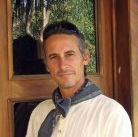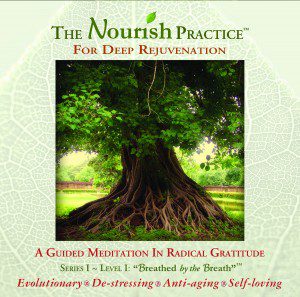By Jack Adam Weber L.Ac., Dipl. C.H.
Contributing Writer for Wake Up World
I did everything I could to stay calm, or at least not to feel excessively freaked out. I write this today, on Day 4: without transportation, cell phone reception, internet, or phone – essentially no communication with the outside world, roads in and out of town blocked by fallen trees, and a debilitating flu I came down with while the hurricane hit. This whole experience seems to have changed me in ways I can’t quite put my finger on yet, similar to the way I have been changed after a good heartbreak.
This hurricane made me feel small . . . very small . . . and scared. And it was just a Category 1 event. This gut-wrenching, first-hand experience gave me the “I’m a small, insignificant part of the universe” humility I can’t get from looking at a starry night’s sky. Such fear of natural disasters – be they forest fires, floods, blizzards, drought, tornadoes, or hurricanes – should make us reasonably afraid of what we are doing to the planet.
[pro_ad_display_adzone id=”110028″]
The more severe droughts, floods, disease epidemics, famine, crop failures, desperate evacuations, water shortages, and hurricanes we encounter from climate changes, the more passionately humbled, sad, remorseful, and scared we may become. These are exactly the kind of feelings we might encounter as we reckon with climate change reality – even, and especially, if humanity has little to no chance of surviving the future. Such feelings amount to a sane response – precisely the sort of ontology we need to live more responsibly and sensibly. These emotions cause us to take pause, long pause – and in this case for me, forced pause. If we embrace these feelings, they can break our hearts open, which can lead to comprehensive healing and living with more love. We would do well to remember that not all fear is the opposite of love, nor are fear and love antithetical, as is commonly peddled in New Age circles. They can exist together and mutually support one another.
The darker, difficult emotions, including fear, are often viewed as nuisances and to be avoided. With regard to fear in particular, I know how debilitating it can be. Yet fear does not need to paralyze us. It is not all debilitating; fear can actually be inspirational and bolster our wellbeing. I like to distinguish between healthy, reasonable fear and neurotic fear. Neurotic fear is often a hindrance which we might want to overcome, especially if it holds us back from our fullness and sharing our gifts. It freezes and shrinks us. An example is the fear of receiving love and appreciation, finding the courage to offer our honest opinion, or the fear of embracing our creativity and the new opportunities it can open. Yet, not all fear is neurotic and deleterious, and we should try to discern which fears are reasonable; we could be careful not to throw the baby of helpful fear out the with the bathwater of neurotic fear.
Life-protective fear, after all, is hardwired in us and unavoidable. It’s here to protect us. The fear – as well as the remorse, sadness, and concern – we could reasonably feel in the face of climate change I consider healthy, life-affirming fear. It causes us to take account of what we are doing and the consequences of these actions. Healthy fear causes us to review our actions and beliefs, to change our ways. So do remorse, sadness, and even shame, guilt and regret. These emotions allow us toself-reflect and change in ways that create more health, justice, peace of mind, true prosperity, hope, and the safeguarding of the Earth.
According to the dialectics of Chinese medicine, which I practice, we can remember that Yin (dark) is just as important to our wholeness as Yang (light). It’s just that in our modern, light, progress-obsessed world, we have lost the art for how embrace and work with the darker emotions to create more light and love, and in the case of climate change, a planet enduringly habitable for humans.
The darker emotions cause us to retreat into ourselves, as opposed to the light emotions of joy, excitement, happiness, and bliss. With humility, sadness, and remorse, I find it easier – automatic actually – to recognize what really matters. In fact, even without climate change, it seems that a function of natural disaster is to keep us humans sane and aware of our place in the bigger picture – part of Nature, not conquerors of it. And certainly not more intelligent than its deep and pervasive intricate balance, which web of relations we cannot completely fathom nor fully understand. We therefore cannot simulate it, though we might try. But we would not have to try if we had not altered the natural balance to such an extreme.
Living through a hurricane, I understand even more that a perpetuated attitude of superiority over nature is mistaken and foolish, not to mention lethal. I don’t mean that we can’t manipulate nature in reasonable ways to make our lives better and safer – as people have done for thousands of years – but we can’t do it to the extreme that we have without serious repercussions. And those repercussions, as I just experienced first-hand, are more extreme wake-up calls. Yet, much of humanity that makes the important decisions for the rest of us seems not to wake up at all – big business fights every bit of legislation that would clean up our polluted world and effectively has allowed our demise to proceed unabated, while contributing to that pollution hand-over-foot every day. Undoubtedly, this neurosis is made worse by the insular nature of cities and a separation from wild Nature. I have to wonder what Nature has in store to shake our cities awake, to break through those bastions of sociopathic, dissociative hubris – which places the great poet Rilke also criticized in his prophetic poems of the earlier 20th century.
The great cities are lost and rotting.
Their time is running out. . . .
The people there live harsh and heavy,
crowded together, weary of their own routines.
Beyond them waits and breathes your Earth,
but where they are it cannot reach them.
They don’t know that somewhere
wind is blowing through a field of flowers.
~ Rainer Maria Rilke, From the Book of Hours III, 4/5
Throughout our lives, we are given lessons and invited to seek out tools to heal and to live better. In her infinite grace, it seems Nature continues to try to guide and instruct us. Our lessons in 2014 are the 11th hour kind of lessons: they are not intellectual as much as emotional and mundanely spiritual – change or die. They rip our hearts out and spill our guts – the only kind of lessons that are going to get us to change enough . . . at least to love enough, so to offer a conciliatory gesture back to “life” for the gifted and beautiful chance we got to live on this beautiful Earth.
Many of us wonder why others don’t take responsibility for creating the pollution that we know is damaging our planet. Yet we might not be self-reflecting any more than those we accuse. Changing our own beliefs about the difficult, darker emotions is a crucial step – an unexpected and paradoxical step – towards becoming more sustainable people. By embracing and heeding the wisdom of our darker emotions we can ensure that we are taking the pause and self-reflection needed to check our actions and beliefs . . . and to let our hearts break, as the only answer for what seems unbearable. For, in the heart’s breaking emerge the solutions we could not imagine or feel while straight-jacketed in literalism, stark materialism, and limited logic.
Today, after the storm, with no power, roads still blocked, telephone poles and internet down, it is so quiet. Magically quiet. The kind of stillness you’d expect from a humanity gravely concerned with climate change, our children, and our survival as a species.
Thank you for listening and considering all this. Please share your thoughts and feelings in the comments section below; it is where we can engage more personally and in-depth.
The Nourish Practice
Jack Adam Weber’s “The Nourish Practice” is an easy, guided meditation-Qi Gong practice in radical gratitude and self-love. It is an Earth-based, body-centered practice — at once physiological and mythological — that is deeply relaxing and replenishing, especially for modern-day burn-out syndrome, and requires little physical effort.
The Nourish Practice “resets your nervous system” and fosters a rich inner life. You can purchase The Nourish Practice as a CD or Digital Download here.
Previous articles by Jack Adam Weber:
- Relationships: The Costs of Staying When We Should Leave
- Emotional Work
- Choosing a Partner – How to Avoid Relationship Suicide
- Re-Thinking Love: Why Our Hearts Must Also Be Minded
- Spirituality – Reality Check
- 11 Crucial Tips for Better Digestive Health
- Shadow Work: Becoming a Sustainable Light Worker (Part 1)
- Oneness in Action: The GMO Eradication Movement
- After the Hurricane: Lessons from the Heart of Nature
- Relationships: How They Can Make Us Happier
- Heartbreak – Loving Ourselves Through Difficult Times
About the author:
 Jack Adam Weber, L.Ac. is a Chinese medicine physician, author, celebrated poet, organic farmer, and activist for body-centered spirituality. His books, artwork, and provocative poems can be found at his website PoeticHealing.com. He is also the creator of The Nourish Practice, an Earth-based rejuvenation meditation. Weber is available by phone for medical consultations and life-coaching.
Jack Adam Weber, L.Ac. is a Chinese medicine physician, author, celebrated poet, organic farmer, and activist for body-centered spirituality. His books, artwork, and provocative poems can be found at his website PoeticHealing.com. He is also the creator of The Nourish Practice, an Earth-based rejuvenation meditation. Weber is available by phone for medical consultations and life-coaching.
You can connect with Jack Adam Weber on Facebook or by emailing Jack@PoeticHealing.com.
[pro_ad_display_adzone id=”110027″]








